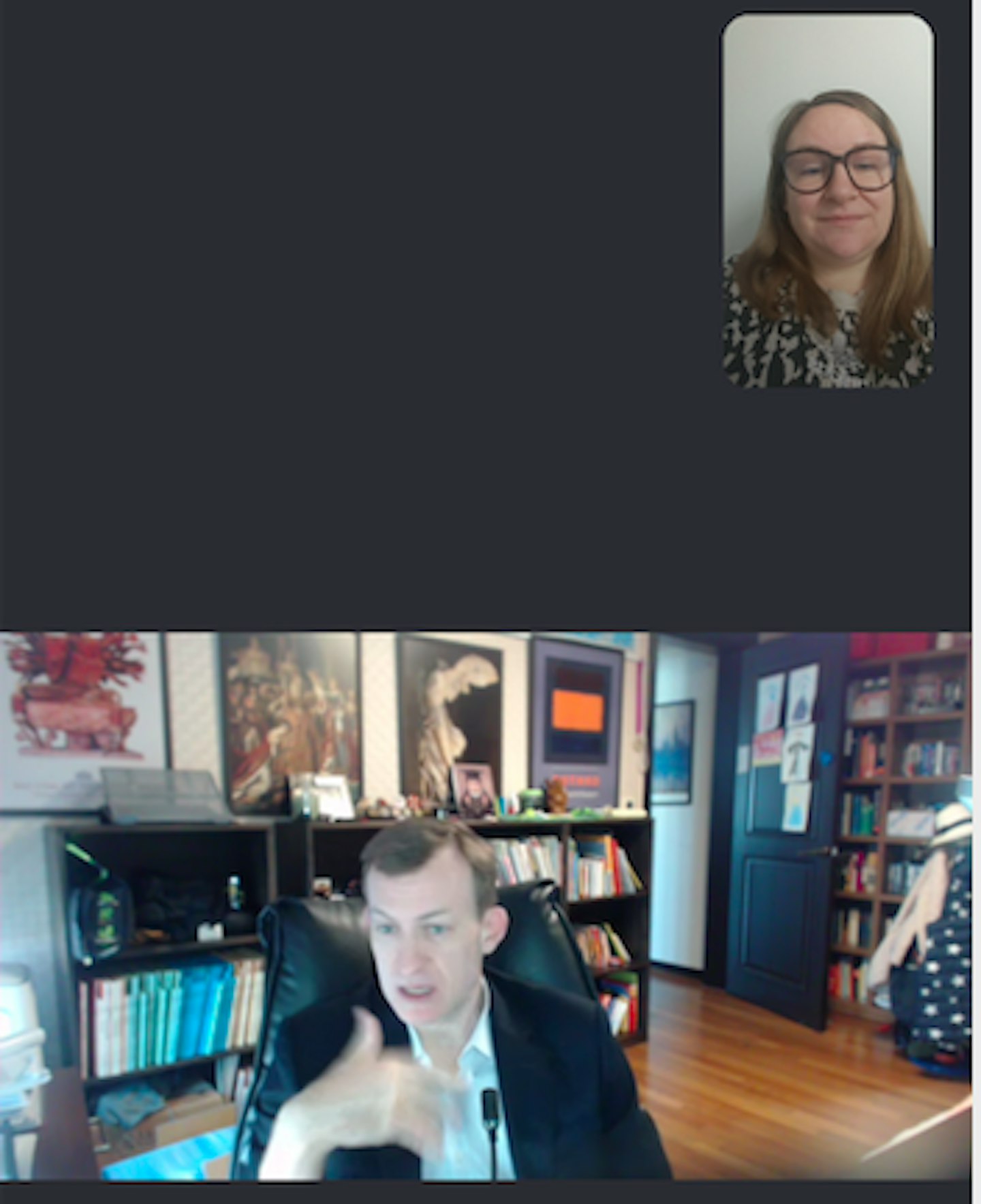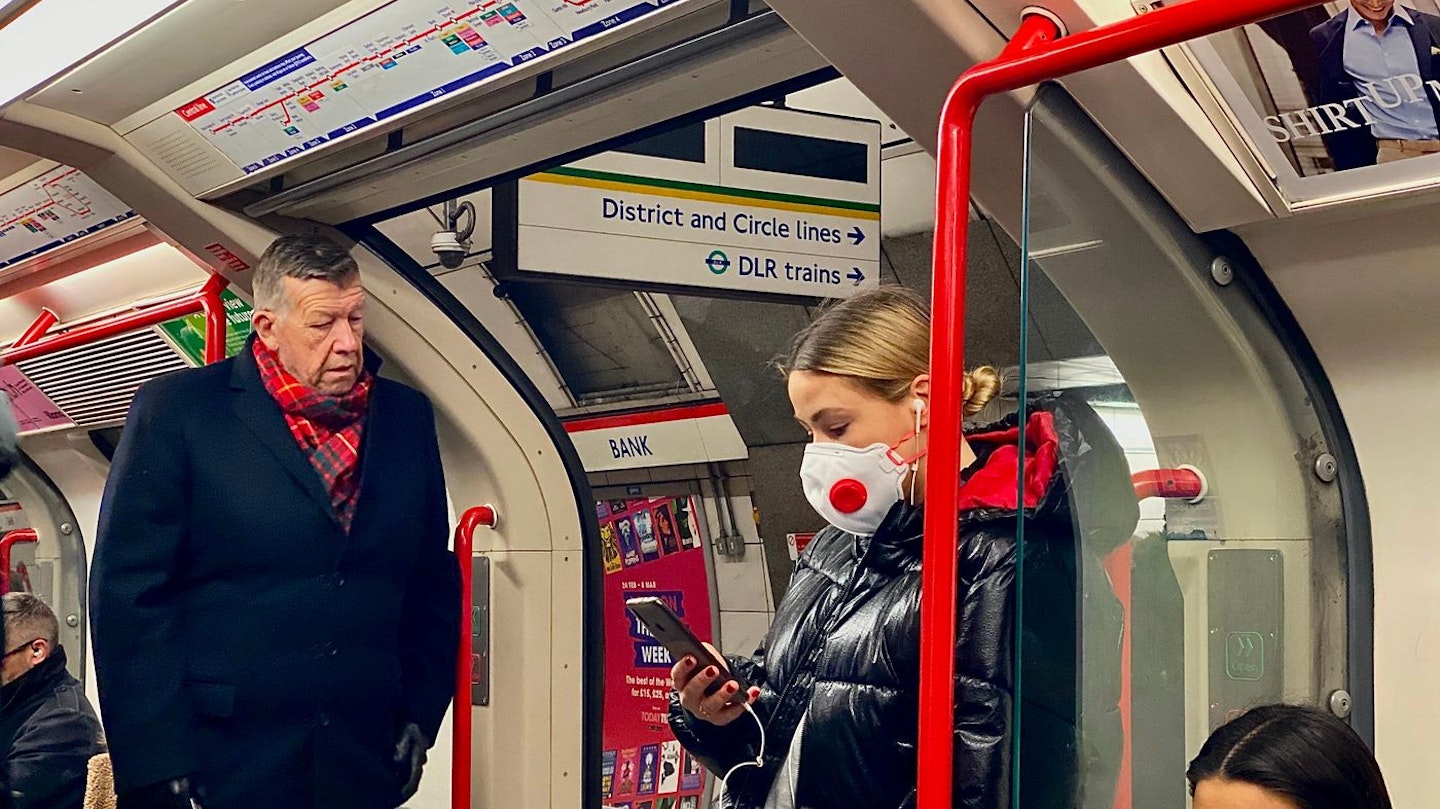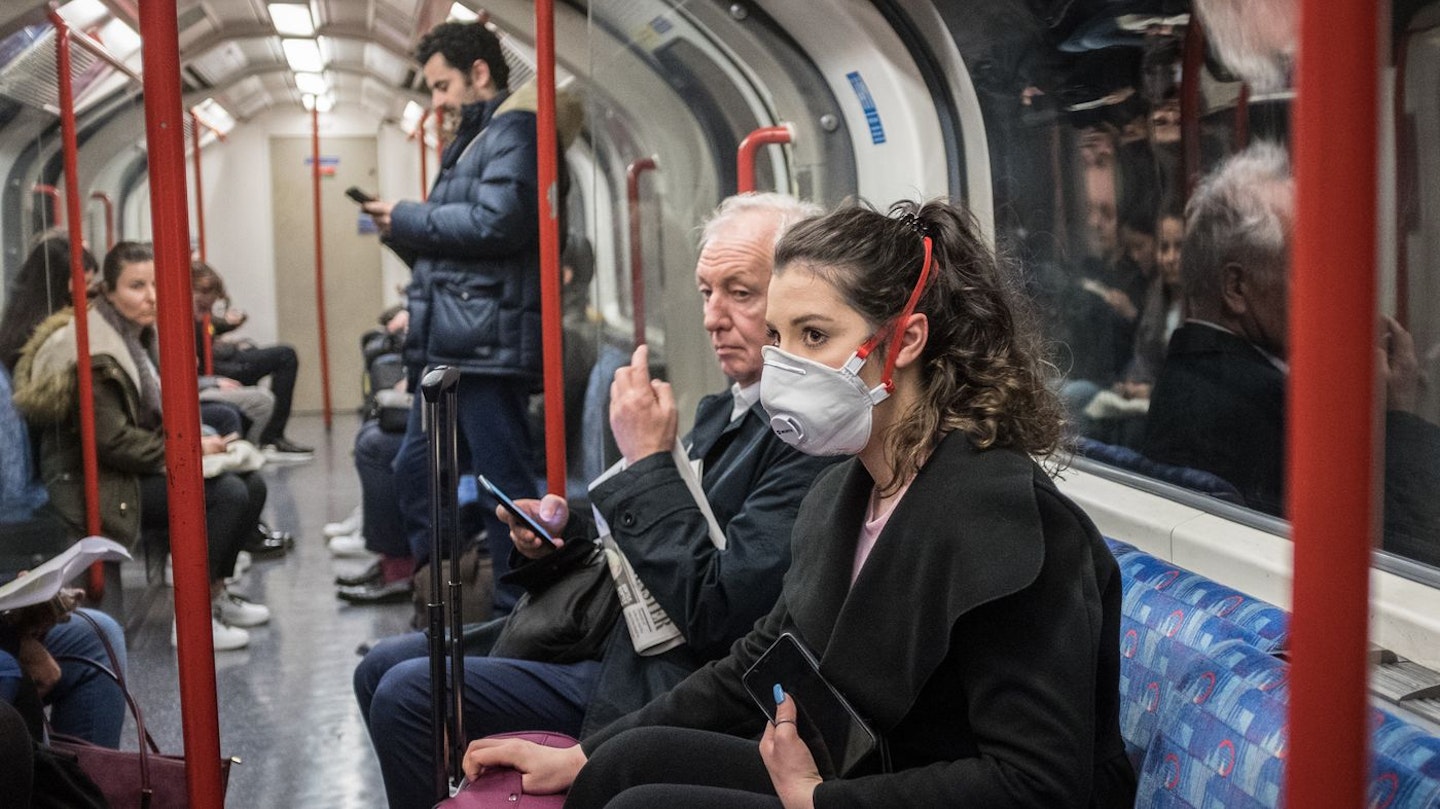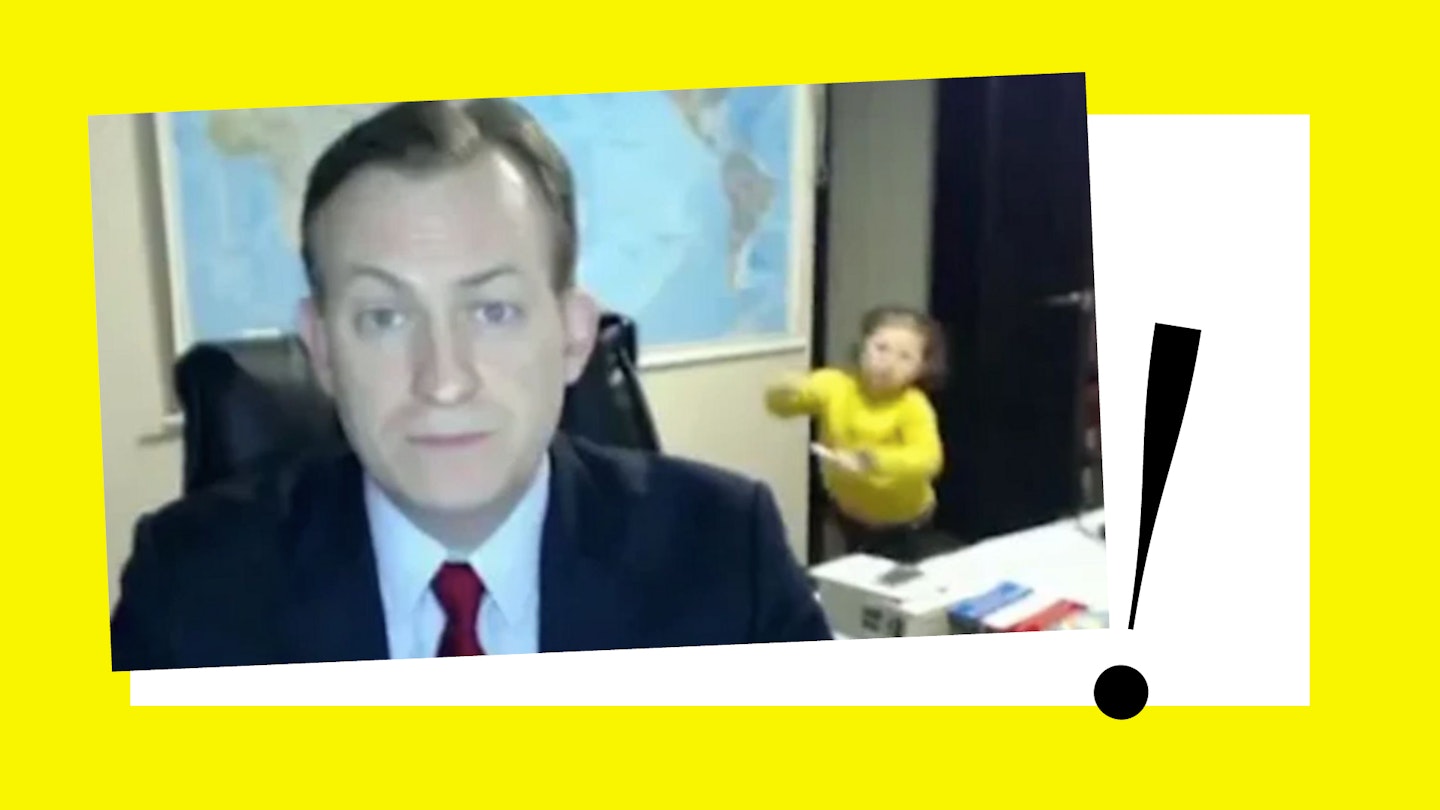Day one of working from home with children and how are you doing? Will you be finishing emails after bedtime? Have you already done a whole season of Peppa Pig? How many times did your child make an appearance on your Teams conference call?
Well, if there’s one man who can sympathise – and give some advice – it’s Professor Robert Kelly, or BBC Dad, as you might know him. Professor Kelly and his family became famous worldwide after his daughter Marion and son James (now seven and three) burst into his study and the background of a BBC interview he was doing by video link about the impeachment of the South Korean president in March 2017. The original YouTube clip has had more than 36 million views, but Professor Kelly says he’s heard estimates that a billion people have seen the video at some point – one in seven people in the world.
‘Lock the door! Lock the door!’ he laughs from that same study when I speak to him over Skype to ask for his advice on working from home. ‘Everybody was like, “Oh he did it to become famous”, but that’s all bunk. You wouldn’t believe the absurd conspiracy theories about that video. But it was an honest mistake, I was tired, I’d been working all day, I was doing a bazillion interviews and then I forgot to lock the door.’
On the working-from-home tips, he says, ‘A space where you can shut the door and get away from your kids is pretty crucial. But that’s hard, unless you’ve got the money to be in a big house – but we live in a normal size apartment in Korea. Even now, when I do TV, my kids are here, they slip away from my wife, they pound on the door.'
He says he doesn't want to live in a 'kind of authoritarian regime in our house where our kids can’t come to see their parents': 'I’d rather have my kids burst in and get in trouble with a producer, than think my kids can’t come in to see their dad. It’s hard to draw off a space where the kids aren’t going to come in, it’s just going to happen.'
Living in South Korea, near the Pusan National University where he works, Kelly and his family are already a month into social-distancing, living mostly at home, altogether. South Korea has been heralded as one of the countries doing a good job of combatting Covid-19 with 20,000 people tested a day – more per capita than anywhere else in the world.
‘We have a bit more flexibility than in Western countries, because they’ve handled the response so badly,' he says. 'Where we live, in our suburb there’s, like, one person with coronavirus in a suburb of 125,000 people. It’s OK here. Because of that, we feel comfortable jogging and taking the kids to the park. But if you look at the numbers in Italy or what might hit in Britain or the US, you might not be able to do that.’
At the moment, the family can have some, restricted time outside – Professor Kelly has been working from home for a month now. ‘Right now my daughter is downstairs in the building with a friend and my wife had to do some shopping so took my son out, so we could do this [interview] uninterrupted. But we’re in the house 22 hours a day,’ he says. ‘It’s tough. The kids aren’t dealing with it well, as you might imagine.’
The family have started to fall into something of a routine. They all go to bed at the same time, so catching up on work in the evenings isn’t doable for Professor Kelly. ‘I get more done in the morning before they get up,’ he says. ‘I get up at like 5am and I work and then I run and I try to do all these things before my kids get up and the house goes bonkers. Basically by 9am, my time is just shot and I can’t get anything done. We try to read to them, we do puzzles… but after a while you have to put them in front of the TV and then you feel guilty… we’re just stumbling through day by day.
‘People still have to leave their house to eat, so that’s when we take the kids out. That’s what we do, we’ve started to build a schedule around this, going to the store has become our get-out-of-the-house excuse.
‘Home schooling is turning out to be a real pain. It’s really hard not to dump them in front of the TV with junk food, so we can get stuff done.
‘Sleeping is getting hard because we don’t move enough, we’re not using that usual energy moving here and there, we’re cooped up in one place. We took the kids out for a hike yesterday, so we could socially distance that way. Going outside, away from people… we’re doing the best we can, too.’

As most parents have probably already predicted, keeping children away from screens 24/7 has proved the biggest challenge. ‘They just want to watch TV all the time,’ he says. ‘I have a job, and to do that I have to have the kids away from me – they can’t crawl all over me while I’m trying to study my Korean or something like that. The easiest way to do that is to dump them in front of the TV. For the first few weeks, when we thought this thing might end, we were like, “Ok, whatever, let them watch Mary Poppins all day,” but you can’t do that day after day. After a while they go nuts and all twitchy. That’s the really big challenge, finding something to do them that isn’t totally passive.’
If there are silver linings to be found, perhaps it’s that employers will have to be more sympathetic to the needs of working parents and, in future, that working from home can be done and work for everyone.
‘I certainly hope so,’ says Professor Kelly. ‘In practice, given how bad this thing is going to get, [employers are] going to have to. You can’t axe 40 per cent of your workforce because their kids are jumping in front of the camera. Lots of people have kids. Employers will have to adapt. A lot of people wrote to me after the video and said it had been a shift in the way people think about working from home.’
He continued: ‘You can’t fire an employee because their kid jumps in front of a camera – and who wants to work for that company? So, they’ll be forced to adapt and if the video helps grease the path towards that, then all the better.’
READ MORE: What To Do With Babies, Toddlers, Kids And Teenagers At Home
Coronavirus 2020
 1 of 5
1 of 5Coronavirus: I Am Trying To Get Pregnant – Should I Stop?
 2 of 5
2 of 5Coronavirus: When Is The Virus Likely To Peak? And Should Pregnant Women Be Especially Concerned?
 3 of 5
3 of 5Is It Hay Fever, The Common Cold Or Coronavirus?
 4 of 5
4 of 5Coronavirus: Widespread Transmission Is Now 'Highly Likely' As UK Cases Reach 36
 5 of 5
5 of 5